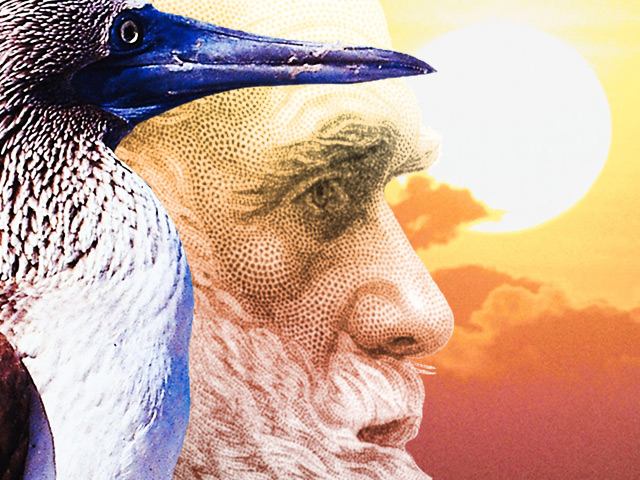N.C. Museum of Natural Sciences celebrates Darwin Day, Feb. 11
For immediate release ‐ January 31, 2017
Contact: Jon Pishney, 919.707.8083. Images available upon request

RALEIGH, N.C. — Learn about famed naturalist Charles Darwin, take a closer look at his theories and their impact on current research, and meet some of the scientists who are continuing his work when the North Carolina Museum of Natural Sciences hosts Darwin Day on Saturday, February 11, 9 a.m.–5 p.m. Free.
Keynote speaker Christie Wilcox, a science communicator for Discover magazine, will talk about the evolution of venom, based in part on her new book “Venomous: How Earth’s Deadliest Creatures Mastered Biochemistry.” According to Wilcox, “Many of Earth’s deadliest creatures wield terrifying chemical cocktails called venoms. Though they are the species we love to loathe, these notorious animals hold the keys to a deeper understanding of evolution, adaptation and immunity.” Following her talk at 1:30 p.m., Wilcox will be signing and selling her book.
Other presenters include Adrian Smith, Head of the Museum’s Evolutionary Biology & Behavior Research Lab, who will discuss Darwin’s ideas on the evolution of social insects (think ants); and Sönke Johnsen, a biology professor from Duke University who will be giving a talk titled “Invisible, Mirrored and Glowing Animals: Light, Life and Death in the Deep Sea.” Plus, William Kimler, associate professor of history at N.C. State University, will speak about Charles Darwin and how he arrived at his theories. And last but not least, Brian Langerhans, an evolutionary biologist from N.C. State, will speak about the evolution of new species.
Visitors can also browse displays and chat with exhibitors about a range of evolutionary topics, including Insect Diversity, courtesy of the NC Entomological Society and featuring colorful live insects from blue death-feigning beetles to Chilean rose-hair tarantulas. Learn more than you ever wanted to know about Bug Love, from pheromones to elaborate courtship displays, or discover why narwhals are called “unicorns of the sea.” Craft tables include Build-a-(trilo)-Bite, where you can see the diversity of extinct trilobites and build one of your own.
Darwin Day is supported by an anonymous donor. Windows on the World presentations are sponsored by Syngenta.
[More info at www.naturalsciences.org/calendar/event/darwin-day-2]
The North Carolina Museum of Natural Sciences (11 W. Jones St. and 121 W. Jones St.) in downtown Raleigh is an active research institution that engages visitors of every age and stage of learning in the wonders of science and the natural world, drawing them into the intriguing fields of study that are critical to the future of North Carolina. Hours: Mon.- Sat., 9 a.m.-5 p.m., and Sun., noon-5 p.m. Visit the Museum online at www.naturalsciences.org. Emlyn Koster, PhD, Museum Director.
The N.C. Department of Natural and Cultural Resources (NCDNCR) is the state agency with a vision to be the leader in using the state’s natural and cultural resources to build the social, cultural, educational and economic future of North Carolina. NCDNCR’s mission is to improve the quality of life in our state by creating opportunities to experience excellence in the arts, history, libraries and nature in North Carolina by stimulating learning, inspiring creativity, preserving the state’s history, conserving the state’s natural heritage, encouraging recreation and cultural tourism, and promoting economic development. For more information, visit www.ncdcr.gov.

